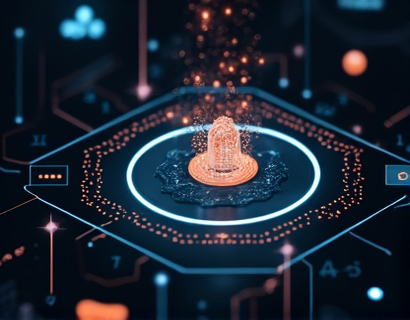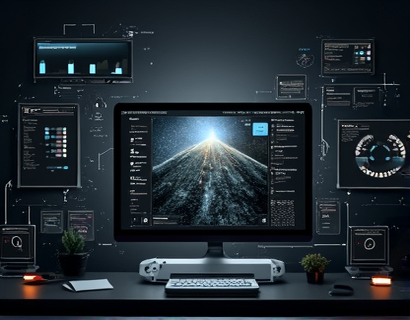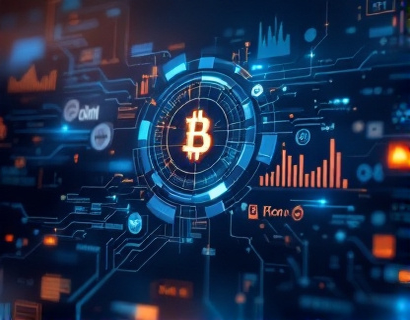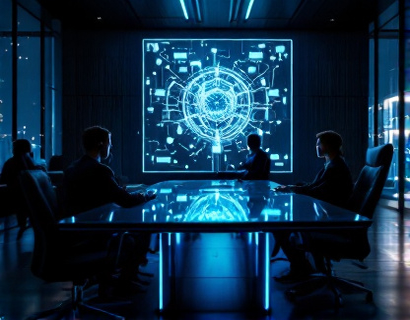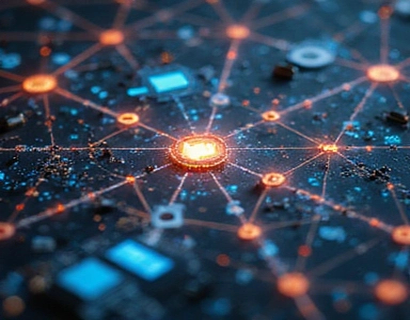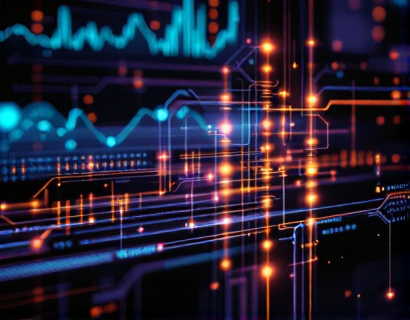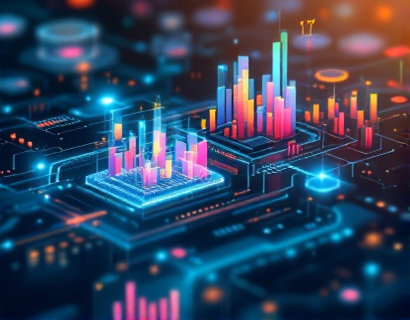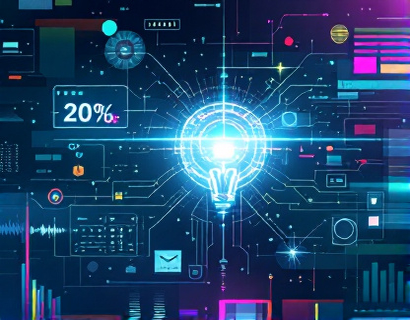Unleashing Advanced Digital Transformation: The Synergy of Crypto and AI
The intersection of cryptocurrency and artificial intelligence (AI) represents one of the most exciting frontiers in technology today. This convergence is not just a technological curiosity but a powerful force driving digital transformation across various industries. For tech pioneers and early adopters, understanding the dynamics and potential of this synergy is crucial. This article delves into the transformative impact of merging these two revolutionary technologies, exploring the innovations that are reshaping the digital landscape and setting the stage for the next wave of technological advancements.
The Foundations of Cryptocurrency and AI
To fully appreciate the impact of combining cryptocurrency and AI, it's essential to understand the fundamentals of each technology. Cryptocurrency, at its core, is a digital or virtual currency that uses cryptography for security and operates on a decentralized network, typically a blockchain. This decentralized nature ensures transparency, security, and reduces the need for intermediaries such as banks.
Artificial intelligence, on the other hand, encompasses a range of technologies designed to simulate human intelligence processes, including learning, reasoning, and self-correction. AI algorithms can analyze vast amounts of data, identify patterns, and make decisions with minimal human intervention. The integration of AI into cryptocurrency systems has opened up new possibilities for automation, security, and efficiency.
Enhancing Security with AI
One of the most significant benefits of merging AI with cryptocurrency is the enhancement of security measures. Traditional cryptocurrencies rely on complex algorithms and consensus mechanisms to secure transactions. However, these systems are not immune to attacks and vulnerabilities. AI can significantly bolster security by detecting and mitigating threats in real-time.
Machine learning algorithms can analyze transaction patterns and identify anomalies that may indicate fraudulent activity. For instance, AI can monitor blockchain networks for unusual spikes in transaction volume or detect patterns that suggest a 51% attack, where a group of miners gains control of the majority of the network's hashing power. By implementing AI-driven security protocols, cryptocurrency platforms can respond swiftly to potential threats, ensuring the integrity and trustworthiness of the network.
Optimizing Blockchain Performance
Blockchain technology, while revolutionary, faces challenges related to scalability and transaction speed. AI can play a pivotal role in optimizing blockchain performance by streamlining processes and improving efficiency. For example, AI algorithms can optimize the consensus mechanism used by a blockchain, reducing the computational power required for validation and increasing the number of transactions processed per second.
Another area where AI excels is in the development of sharding techniques, which involve dividing the blockchain into smaller, more manageable parts. AI can intelligently manage these shards, ensuring that transactions are processed efficiently and that the network remains secure and decentralized. This not only enhances the performance of the blockchain but also makes it more accessible for widespread adoption.
Smart Contracts and AI Integration
Smart contracts are self-executing contracts with the terms of the agreement directly written into code. They automatically enforce and execute the terms when predefined conditions are met. The integration of AI into smart contracts can further enhance their functionality and reliability.
AI can be used to predict and adapt to changing conditions in real-time, making smart contracts more dynamic and responsive. For instance, in supply chain management, AI can monitor various factors such as inventory levels, shipping status, and market demand, and adjust smart contract parameters accordingly. This ensures that contracts are executed efficiently and that all parties involved are satisfied with the outcomes.
Moreover, AI can help in the creation of more complex and sophisticated smart contracts by analyzing vast amounts of data and identifying optimal conditions and outcomes. This reduces the risk of errors and ensures that smart contracts are robust and reliable.
Personalized User Experiences
The combination of cryptocurrency and AI also opens up new possibilities for personalized user experiences. Cryptocurrencies can serve as a medium for decentralized finance (DeFi) platforms, which offer a range of financial services such as lending, borrowing, and trading without traditional financial intermediaries.
AI can analyze user behavior, preferences, and financial data to provide tailored recommendations and services. For example, a DeFi platform can use AI to suggest the most profitable investment opportunities based on a user's risk tolerance and historical transactions. This level of personalization not only enhances user satisfaction but also increases the adoption and utility of cryptocurrency-based financial services.
Decentralized Data Markets
Another innovative application of the crypto-AI synergy is the creation of decentralized data markets. In these markets, users can monetize their data by selling it to organizations that need it for training AI models or conducting research. Blockchain technology ensures that data transactions are secure, transparent, and rewarding for data providers.
AI plays a crucial role in these markets by matching data suppliers with buyers based on the quality and relevance of the data. Machine learning algorithms can evaluate the value of different data sets and ensure that transactions are fair and efficient. This not only creates new revenue streams for individuals but also democratizes access to high-quality data, accelerating AI development across various industries.
Challenges and Considerations
While the integration of AI and cryptocurrency offers numerous benefits, it also presents several challenges that must be addressed. One of the primary concerns is the regulatory landscape. The decentralized and often anonymous nature of cryptocurrencies can pose challenges for regulators aiming to ensure compliance and prevent illicit activities such as money laundering and fraud.
AI can help in this regard by developing advanced compliance tools that monitor transactions and identify potential regulatory issues. However, the effectiveness of these tools depends on clear and adaptive regulatory frameworks that can keep pace with technological advancements.
Another challenge is the technical complexity involved in integrating AI with blockchain systems. Developing robust and scalable solutions requires expertise in both domains, and there is a need for more interdisciplinary collaboration to overcome these technical hurdles.
Future Prospects
The future of the crypto-AI synergy is promising, with several emerging trends and innovations on the horizon. One such trend is the development of AI-powered decentralized autonomous organizations (DAOs). DAOs are community-driven entities governed by smart contracts, and AI can enhance their decision-making processes and operational efficiency.
Another exciting area is the integration of AI with non-fungible tokens (NFTs) and other digital assets. AI can create unique and dynamic NFTs that evolve over time, offering collectors and investors new dimensions of value and engagement. Additionally, AI can optimize the creation and distribution of NFTs, ensuring that they are produced and traded in a sustainable and ethical manner.
Furthermore, the convergence of cryptocurrency and AI is likely to drive advancements in other areas such as Internet of Things (IoT), virtual reality (VR), and augmented reality (AR). AI can enhance the security and efficiency of IoT devices, while cryptocurrency can provide decentralized and secure transaction mechanisms for VR and AR applications.
Conclusion
The synergy between cryptocurrency and AI represents a powerful force for digital transformation, offering innovative solutions that enhance security, performance, and user experiences. For tech pioneers and early adopters, embracing this synergy can lead to groundbreaking advancements and new opportunities in the digital landscape. As the technologies continue to evolve, staying informed and adaptable will be key to harnessing their full potential.







